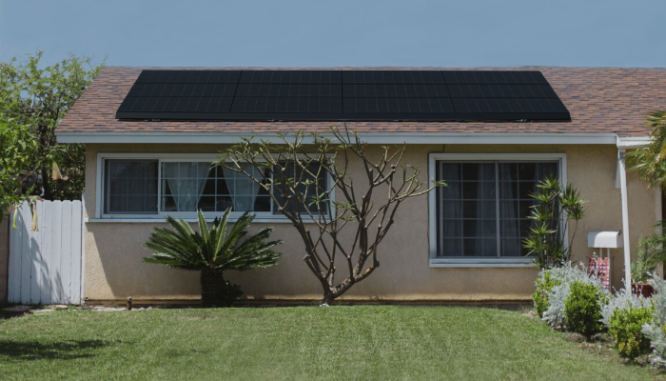How Much Money Do You Get Back in Taxes for Buying a House?
DISCLAIMER: As a friendly reminder, this blog post is meant to be used for educational purposes only, not legal or tax advice. If you need help determining the taxes on your home sale, please consult a skilled tax professional.
If you bought your first house last year, then you probably don’t know what to expect when it comes to claiming your tax benefits. Now that you’re a homeowner, there are certain deductions you can claim on your taxes that could benefit your bottom line.
That said, the sugar is not as sweet as it once was when it comes to the tax benefits of homeownership. “The art of buying a house doesn’t do much anymore — especially for first-time homebuyers,” says Collier Swecker, a real estate agent in Birmingham, Alabama, with a Masters of Law in Taxation degree. “Since the Tax Cuts and Jobs Act of 2017, the standard deduction is so good for couples and even singles that people aren’t itemizing their taxes like they were.”
In this article, we’ll break down how much money you can get back in taxes for buying a house based on a hypothetical homeowner to see if they’ll get the most tax benefit from itemizing their taxes or taking the standard deduction.
Here are some details about our hypothetical homeowner:
- Married
- Filing jointly
- Living in Kansas City, Missouri (where the median price of a home is $189,000)
- Household income of $63,404 per year (the median household income in Kansas City)
- Started making mortgage payments in May 2019 on their $189,000 home
- Paying a 4.5% interest rate on the mortgage
- Made a 6% down payment ($11,340)
So, let’s see what our homeowner’s taxes look like in 2019.
Oh, and just a reminder: This hypothetical scenario is for educational purposes only. Your taxes are very specific to you, and you should contact a tax professional to help guide you.

Source: (Startup Stock Photos / Pexels)
DISCLAIMER: As a friendly reminder, this blog post is meant to be used for educational purposes only, not legal or tax advice. If you need help determining the taxes on your home sale, please consult a skilled tax professional.
If you bought your first house last year, then you probably don’t know what to expect when it comes to claiming your tax benefits. Now that you’re a homeowner, there are certain deductions you can claim on your taxes that could benefit your bottom line.
That said, the sugar is not as sweet as it once was when it comes to the tax benefits of homeownership. “The art of buying a house doesn’t do much anymore — especially for first-time homebuyers,” says Collier Swecker, a real estate agent in Birmingham, Alabama, with a Masters of Law in Taxation degree. “Since the Tax Cuts and Jobs Act of 2017, the standard deduction is so good for couples and even singles that people aren’t itemizing their taxes like they were.”
In this article, we’ll break down how much money you can get back in taxes for buying a house based on a hypothetical homeowner to see if they’ll get the most tax benefit from itemizing their taxes or taking the standard deduction.
Here are some details about our hypothetical homeowner:
- Married
- Filing jointly
- Living in Kansas City, Missouri (where the median price of a home is $189,000)
- Household income of $63,404 per year (the median household income in Kansas City)
- Started making mortgage payments in May 2019 on their $189,000 home
- Paying a 4.5% interest rate on the mortgage
- Made a 6% down payment ($11,340)
So, let’s see what our homeowner’s taxes look like in 2019.
Oh, and just a reminder: This hypothetical scenario is for educational purposes only. Your taxes are very specific to you, and you should contact a tax professional to help guide you.

Source: (Startup Stock Photos / Pexels)
Mortgage interest deduction
The first tax benefit you receive when you buy a home is the mortgage interest deduction, meaning you can deduct the interest you pay on your mortgage every year from the taxes you owe on loans up to $750,000 as a married couple filing jointly or $350,000 as a single person.
If you buy at the beginning or middle of the year, your first year of homeownership will likely also yield your biggest mortgage interest deduction because mortgages are usually amortized, meaning your interest payments are frontloaded.
Here’s what you need to do
Itemize your deductions instead of taking the standard deduction — as long as your itemized deductions are more than the standard deduction. To determine this, you’ll need to do the math.
In 2019, for example, the standard deduction for a married couple filing jointly was $24,400 ($12,200 for a single person). If you don’t have more than that to write off, it makes sense to just take the standard deduction.
Swecker points out that itemizing this deduction usually makes the most sense for “someone that is single and blowing it out of the water financially,” he says.
“Think about it — with a couple, you are two people, but there’s just one mortgage deduction. A single person could buy the same house and would only need to find $12,200 in deductions, whereas a couple still needs to find $24,400.”
If our hypothetical homeowner itemized their taxes, they could deduct approximately $5,500 in mortgage interest from their taxable income (that’s the interest they paid at a 4.5% rate from May through December for the $177,660 they owe on their home after the down payment).
Take note: Your loan provider will send you a tax document outlining exactly how much interest you’ve paid on your mortgage each year.
Property tax deduction
In addition to the interest you pay on your mortgage, homeowners can also deduct up to $10,000 paid on property taxes. Depending on the property tax rate where you live, and how much you paid for your home, this could be substantial.
For example, states with the highest property tax rates include New Jersey (2.44%), Illinois (2.31%), and New Hampshire (2.20%). States with the lowest property taxes are Hawaii (0.27%), Alabama (0.42%), and Louisiana (0.52%).
Swecker says that this deduction makes a lot of sense in states with high state and local taxes. “This happens in New York and a lot of the northern states,” he says. “You get hit on property tax and local tax and all this stuff.”
Here’s what you need to do
Itemize your deductions instead of taking the standard deduction.
Our hypothetical homeowner lives in Missouri, where the property tax is 0.99%. With a house valued at $189,000, our homeowner could deduct $1,890 from their taxes.

Source: (Startup Stock Photos / Pexels)
Points
When buying a house, it’s possible to buy discount points, which are essentially prepaid interest. Just like home mortgage interest, these points can be deducted if you itemize your taxes.
According to the IRS, points can be deducted ratably over the life of the loan or deducted all at once in the year that they were paid. It’s also possible to fully deduct points paid on a loan to improve your main home if it meets certain criteria.
Swecker points out, however, that there are income limitations. “The real rich won’t get this benefit,” he says.
Here’s what you need to do
You’ll have to have purchased points when you bought your primary residence. Points must be “bona fide discount points,” in other words, amounts of money paid to actually buy down your rate. The settlement statement must show the points purchased. Additionally, the points need to have been computed as a percentage of your mortgage principal. (In general, mortgage loan points are worth 1% of the loan and buy down a fixed amount of the rate, e.g. 1% up front buys down .125% to .250% of the rate, depending on the lender.)
In the case of our hypothetical homeowner, purchasing 1 point to lower their interest rate from 5.5% to 5.25% would cost them $1,776.60. They could then turn around the write off that expense, lowering their tax liability by $1,776.60.
Private mortgage insurance (PMI)
If you make less than $50,000 as a single person or less than $100,000 jointly as a married couple, you might be able to deduct your private mortgage insurance (PMI.) PMI is a monthly fee rolled into the total cost of your mortgage and is meant to protect your lender if you stop making payments on your home. PMI is usually required on conventional loans when homeowners have less than 20% equity in their homes.
Here’s what you need to do
Check to see whether you have PMI on your loan. Next, check your income to see whether you meet the limitation requirements.
Because our hypothetical homeowner makes less than $100,000 per year as a married couple and put down less than 20% on their home, they qualify for this tax deduction. Depending on factors like credit score and money down, PMI is typically between 0.5% to 1% of the total loan amount.
Assuming a PMI rate of 1% ($1,776.60/year), which they paid from May through December, our hypothetical homeowner could deduct $1,036.35 from their taxes.

Source: (Andrea Piacquadio / Pexels
Mortgage credit certificate
According to Investopedia, a mortgage credit certificate (MCC) is a document provided by the originating mortgage lender to the borrower that directly converts a portion of the mortgage interest paid by the borrower into a non-refundable tax credit. These credits are for low-to-moderate-income homebuyers. The maximum tax credit a borrower can receive is $2,000 per year.
Here’s what you need to do
Check to see if you qualify. According to NCSHA, the program serves those who are generally first-time homebuyers and earn no more than the greater of their state-wide or area median income.
Because our hypothetical homeowner makes the median income in their area, they may qualify for an MCM. With a $177,660 mortgage x 4.5% interest rate x an MCC percentage of 20%, our homeowners could claim $1,598.94 in credit on their tax return.
Home office deduction
Do you work from home? If so, you’re in luck. You can get a tax deduction based on the square footage of your home office — $5 per square foot for up to 300 square feet of office space. Swecker warns, however, to be very cautious with this tax write-off.
“It’s an audit risk,” he says, “because the IRS knows homeowners have the tendency to fudge the truth. The amount of money you save probably isn’t worth the scrutiny that the audit will cause — even if you do work from home. Data shows that those that claim a home office deduction are audited at a higher rate.”
Here’s what you need to do
To write off your home office, it must be used exclusively for conducting business. In other words, even if you work from bed on your laptop, you won’t be able to write off the space as your office because it doubles as your bedroom, too.
Next, calculate the square footage of your office.
If our hypothetical homeowner works in a 200-square-foot home office, they could write off $1,000 on their taxes.

Source: (Vivint Solar / Pexels)
Certain home upgrades
It’s possible to deduct some environmentally friendly upgrades to your home, such as solar panels. In 2019, homeowners who installed solar panels can claim a 30% credit. In 2020, that credit drops to 26%, then 22% in 2021 before the credit disappears altogether.
“It’s not a lot of money,” says Swecker, “but it gives you something back.”
Here’s what you need to do
If you bought and installed solar panels in 2019, you can claim up to 30% of the expenditures.
If our hypothetical homeowner bought and installed solar panels for $16,300, the average cost nationwide, they would receive a tax credit of $4,890.
When we add up the deductions above, they come out to a grand total of $18,296.59 in tax write-offs. While that’s a large chunk of change, it’s still less than the standard deduction of $24,400 for married people filing jointly. For that reason, our hypothetical homeowner would still take the standard deduction.
Header Image Source: (Pixabay / Pexels)
We've got you covered
Getting ready for the big move. Negotiations. Inspections. There are a lot of moving parts to buying or selling a house in the DFW.
Rest easy. We're here to help you so that you have peace of mind from the beginning to end of your real estate transaction.
Find "The One"
Your dream home awaits! We're here to guide you through the simple steps to a buyer's success.
Time For a Change?
Get excited about your next chapter! We bring patience, compassion, and calmness to what most consider an overwhelming process.
CLIENT SUCCESS STORY
Meet John & Lynn
"We were busting at the seams! The house we were living in was our starter house. It was great when it was just Lynn and I, but when our two kids came along we quickly realized we needed more space!"
John & Lynn had some hurdles to jump - figure out how to sell their house & buy a new construction home at the same time. They also did all of this during the COVID-19 pandemic!




